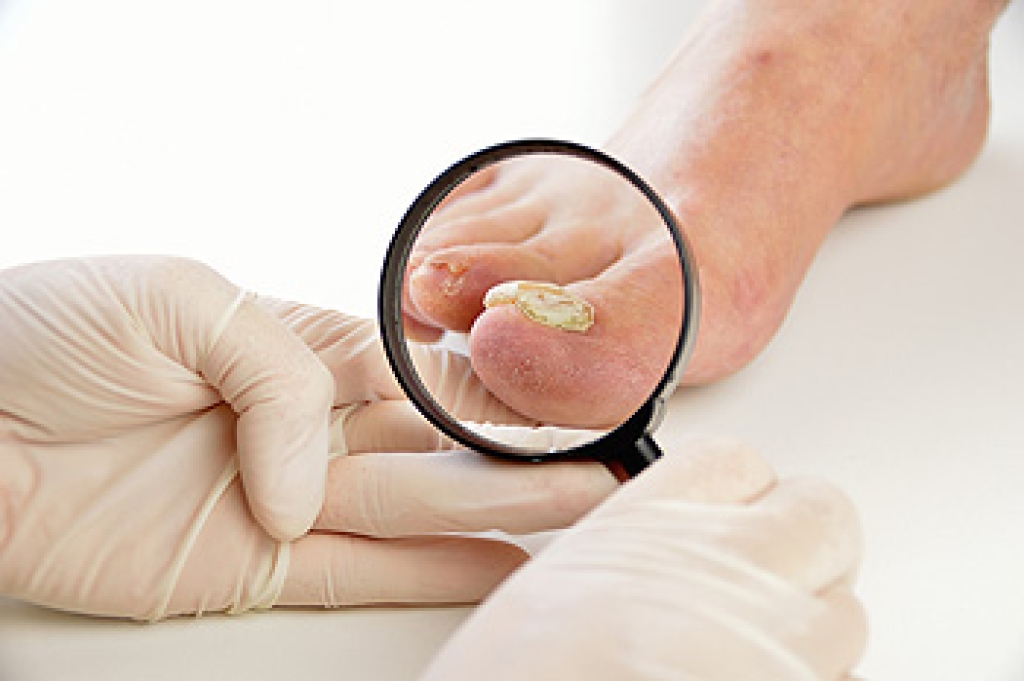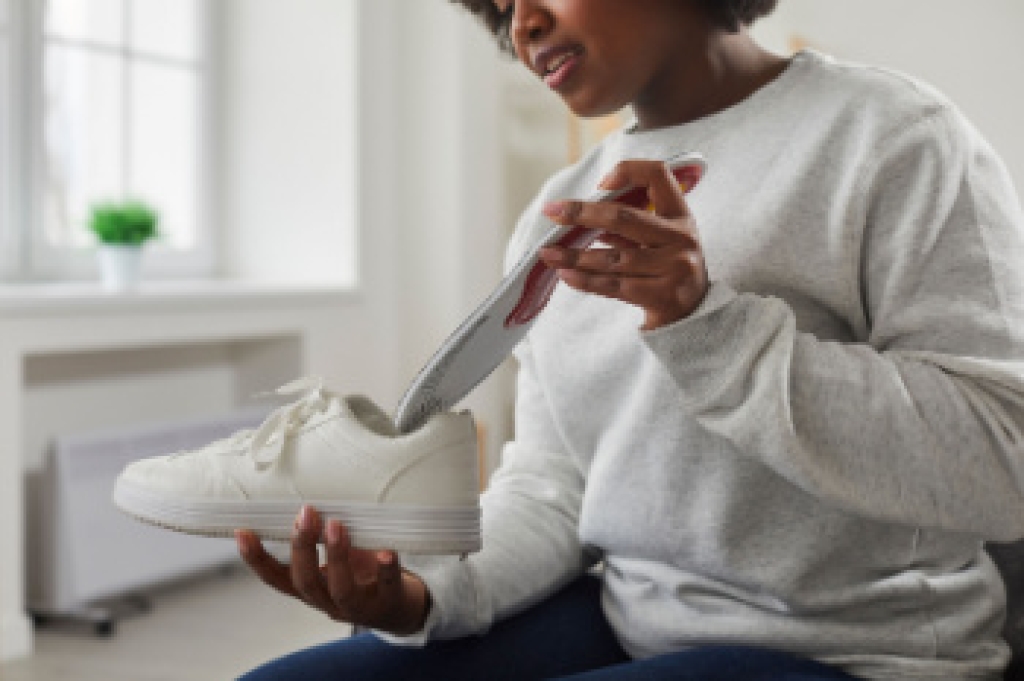
Fungal toenails, or onychomycosis, are caused by fungi that infect the nail through cracks or cuts in the skin. Warm, moist environments, like sweaty shoes or public shower areas, promote fungal growth. The infection can start in one nail and spread to others, if left untreated. Symptoms include thickened, discolored nails that may appear yellow, brown, or white. The nail may become brittle, crumbly, or distorted in shape. In some cases, it may separate from the nail bed and emit a foul odor. While not always painful, fungal toenails can cause discomfort, especially when wearing shoes. A podiatrist can diagnose fungal toenails through a physical exam and may take a sample for lab testing to confirm the infection. Treatment options include topical or oral antifungal medication, and in severe cases, nail removal. If you are dealing with this condition, it is suggested that you make an appointment with a podiatrist for evaluation and treatment.
If left untreated, toenail fungus may spread to other toenails, skin, or even fingernails. If you suspect you have toenail fungus it is important to seek treatment right away. For more information about treatment, contact one of our podiatrists of PA Foot & Ankle Associates. Our doctors can provide the care you need to keep you pain-free and on your feet.
Symptoms
- Warped or oddly shaped nails
- Yellowish nails
- Loose/separated nail
- Buildup of bits and pieces of nail fragments under the nail
- Brittle, broken, thickened nail
Treatment
If self-care strategies and over-the-counter medications does not help your fungus, your podiatrist may give you a prescription drug instead. Even if you find relief from your toenail fungus symptoms, you may experience a repeat infection in the future.
Prevention
In order to prevent getting toenail fungus in the future, you should always make sure to wash your feet with soap and water. After washing, it is important to dry your feet thoroughly especially in between the toes. When trimming your toenails, be sure to trim straight across instead of in a rounded shape. It is crucial not to cover up discolored nails with nail polish because that will prevent your nail from being able to “breathe”.
In some cases, surgical procedure may be needed to remove the toenail fungus. Consult with your podiatrist about the best treatment options for your case of toenail fungus.
If you have any questions please contact one of our offices located in Allentown, Easton, Northampton, and Chew Street in Allentown, PA . We offer the newest diagnostic and treatment technologies for all your foot and ankle needs.




